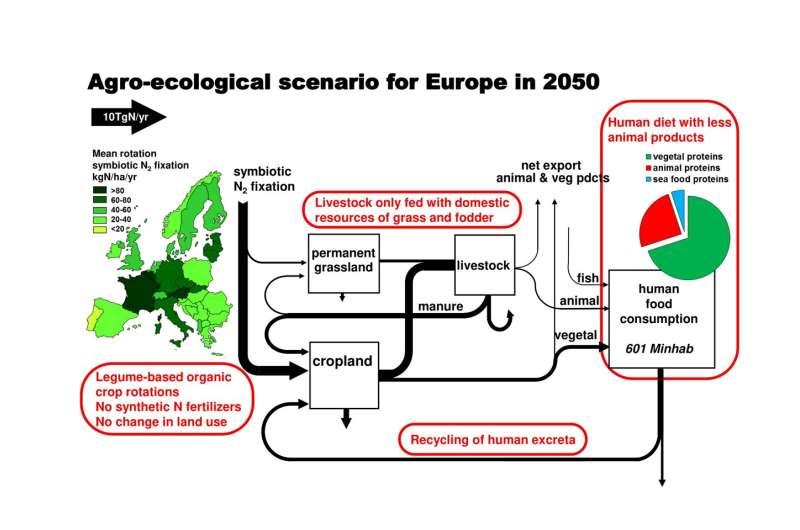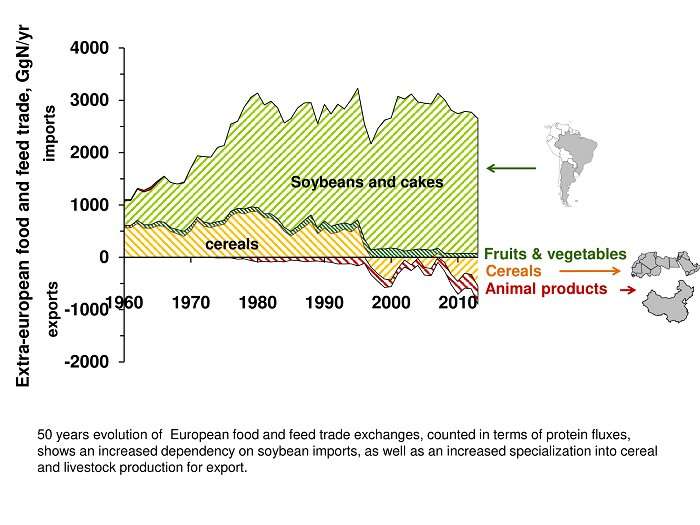Diagram of a possible agro-ecological scenario for 2050. Credit: © Gilles Billen
Food has become one of the major challenges of the 21st century. According to a study carried out by CNRS scientists, an organic, sustainable, biodiversity-friendly agro-food system, could be implemented in Europe and would allow a balanced coexistence between agriculture and the environment.
The scenario proposed is based on three levers. The first would involve a change in diet, with less consumption of animal products, making it possible to limit intensive livestock farming and eliminate feed imports. The second lever would require the application of the principles of agroecology, with the generalization of long, diversified crop rotation systems incorporating nitrogen-fixing legumes, making it possible to do without synthetic nitrogen fertilizers and pesticides. The final lever would consist in bringing together crops and livestock, which are often disconnected and concentrated in ultra-specialized regions. This would allow optimal recycling of manure.
According to this scenario, it would in this way be possible to reinforce Europe's autonomy, feed the predicted population in 2050, continue to export cereals to countries which need them for human consumption, and above all substantially reduce water pollution and greenhouse gas emissions from agriculture.
This study was published in One Earth on June 18, 2021.
Changes in Europe's external trade in food products over the past 50 years. Credit: © Gilles Billen
More information: One Earth (2021). DOI: 10.1016/j.oneear.2021.05.008
Journal information: One Earth
Provided by CNRS

























